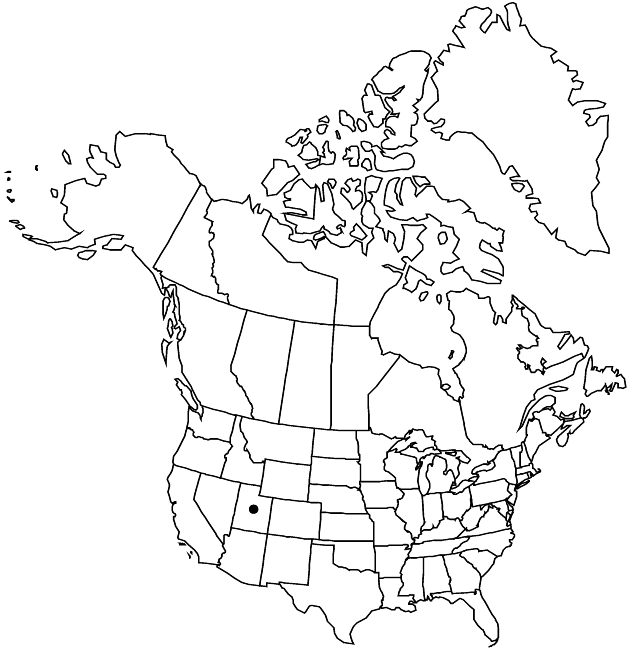Difference between revisions of "Erigeron goodrichii"
Great Basin Naturalist 43: 366. 1983.
imported>Volume Importer |
imported>Volume Importer |
||
| Line 50: | Line 50: | ||
|publication year=1983 | |publication year=1983 | ||
|special status=Endemic | |special status=Endemic | ||
| − | |source xml=https:// | + | |source xml=https://bitbucket.org/aafc-mbb/fna-data-curation/src/2e0870ddd59836b60bcf96646a41e87ea5a5943a/coarse_grained_fna_xml/V19-20-21/V20_582.xml |
|tribe=Asteraceae tribe Astereae | |tribe=Asteraceae tribe Astereae | ||
|genus=Erigeron | |genus=Erigeron | ||
Latest revision as of 20:04, 5 November 2020
Perennials, 3–12 cm; taprooted, caudex branches usually relatively short and thick, sometimes apparently simple. Stems erect to decumbent-ascending (greenish proximally), usually hirsute to hirtellous (hairs deflexed, attenuate, basal cells erect), sometimes proximally strigose (hairs ascending), sometimes slightly glandular. Leaves basal (persistent) and cauline; basal blades oblanceolate, 20–60 × 2–6 mm, cauline slightly reduced distally, mostly on proximal 1/2 of stem, margins entire (apices rounded to obtuse), faces strigose to loosely hirsutulous, eglandular. Heads 1(–3). Involucres 5–7 × 10–15 mm. Phyllaries in 2–4 series, hirsute to hirsuto-villous, eglandular. Ray florets 30–60; corollas blue, 6–10 mm, laminae tardily coiling. Disc corollas 3.5–4.5 mm. Cypselae 1.8 mm (immature), 2-nerved, faces sparsely strigose; pappi: outer of setae, inner of 20–25 bristles.
Phenology: Flowering Jul–Aug.
Habitat: Rocky sites, crevices, often at or above timberline, Engelmann spruce krummholz, meadows
Elevation: (2200–)2700–3500 m
Discussion
Selected References
None.
